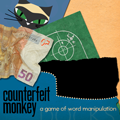Counterfeit Monkey — 41 of 292
Emily Short
Part 2 - Senses
Section 1 - Smell and Taste
A thing has some text called the scent-description.
The scent-description of a person is usually "deod[our]ant".
A thing has some text called the flavor-description.
Instead of tasting something:
if the flavor-description of the noun is "":
if the noun is r-abstract:
say "There's not enough there to provide much flav[our].";
else:
say "[Cap It-they of noun] taste[s] as I would have expected.";
otherwise:
say "[flavor-description of the noun].[paragraph break]".
Instead of smelling something:
if the scent-description of the noun is "":
if the noun is r-abstract:
say "There's hardly any od[our] to [the noun].";
else:
say "[Cap It-they of noun] smell[s] as I would have expected.";
otherwise:
say "[Cap It-they of noun] smell[s] like [scent-description of the noun].[paragraph break]".
Instead of tasting something which is not edible:
if the noun is a person:
say "That would be unpleasantly intimate.";
otherwise:
say "[one of]I have an aversion to licking things that aren't meant for human consumption.[or]Doesn't that seem kind of germy?[or]Ew.[at random]".
Understand "bite [someone]" as attacking.
Understand "bite [something]" as tasting.
Instead of eating something:
say "[one of]I don't think our nausea makes eating such a great idea.[or]I really couldn't.[or]I'm still feeling pretty sick to our stomach.[or]Let's not tempt fate.[cycling]"
